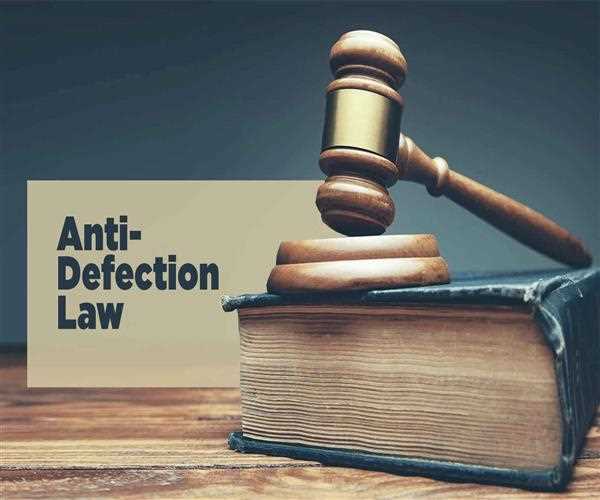The anti-defection law in the Indian constitution is a law that was enacted in 1985 to prevent elected members of Parliament and state legislatures from switching parties. The law was passed in response to the growing problem of political defections, which were seen as undermining the stability of Indian democracy.

The anti-defection law defines defection as the act of an elected member of Parliament or state legislature voting against the whip of his or her party on a vote of confidence or a no-confidence motion, or abstaining from voting on such a motion without prior permission from the party. A member who is found to have defected is liable to be disqualified from membership of Parliament or the state legislature.
The anti-defection law has been controversial since its inception. Critics argue that the law stifles dissent and prevents elected members from representing the views of their constituents. Supporters of the law argue that it is necessary to prevent political instability and to uphold the principle of collective responsibility within political parties.
The anti-defection law has been amended several times since it was first enacted. In 2003, the law was amended to allow for splits in political parties without disqualification, provided that at least one-third of the members of the party split. This amendment was made in response to a Supreme Court ruling that had declared the original law to be unconstitutional.
The anti-defection law remains a controversial law in India. It is likely to continue to be debated and amended in the years to come.
Here are some of the pros and cons of the anti-defection law:
Pros:
The law helps to prevent political instability by discouraging elected members from switching parties.
The law upholds the principle of collective responsibility within political parties.
The law helps to ensure that elected members represent the views of their constituents.
Cons:
The law stifles dissent and prevents elected members from representing the views of their constituents.
The law can be used by party leaders to discipline or punish members who do not toe the party line.
The law can be used to rig elections by ensuring that the ruling party always has a majority in Parliament or the state legislatures.